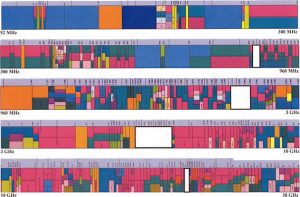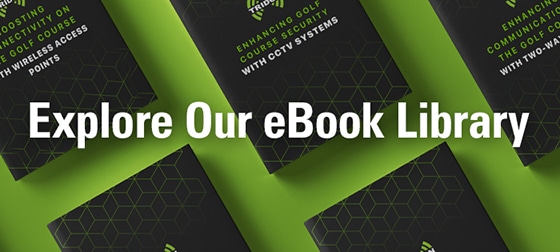Winter is just around the corner; it may already be here if you live in northern Alberta.
If you’re managing projects in Fort McMurray or Athabasca Oil Sands, frost on the ground means the winter drilling season is only a few months away. Now is the time to start planning. That includes thinking about your communication system and what kind of two-way radios, accessories, and infrastructure you’ll need.
Your radio system may only have to support a small team at a single rig site, or it may have to connect dozens of people at multiple sites, along with drivers, SCADA systems and access control networks. Whether your operation is small, massive or (most likely) somewhere in between, planning your communication system takes time and a fair amount of forethought.
Veterans of the oil and gas industry are no stranger to this, but if you’re new to the field (or if you just need a bit of a refresher), here are some of the most important questions to ask yourself.
What equipment do I already have on hand?
Depending on the radios and repeaters you already have, you may not need to buy or rent anything at all. Ensuring they’re in good working order, then reprogramming and repairing the equipment as needed, might be enough to set your radio system up for success in the upcoming season.
One thing to keep in mind, though: If you plan on using equipment you already have, make sure it’s compatible with any additional gear you buy or rent.
How many (more) radios d I need?
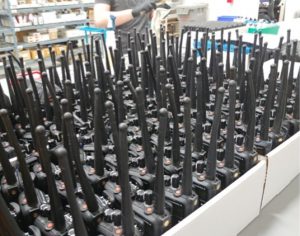
One radio can be shared amongst two or three people, each working a different shift. You would want to ensure you had enough spare batteries but sharing radios could be very cost-effective.
You’ll also want to consider what kind of accessories you need – like gang chargers, headsets, and speaker mics – and that (for hygiene reasons) some of these may not be easy to share.
What kind of radios do I need?
you need portable (handheld) two-way radios or mobile (vehicle-mounted) radios? UHF or VHF? Do you need CSA-approved, intrinsically safe equipment? If so, what Class and Div.? What features are mandatory, and which are unnecessary? All of these questions need to be answered before any conversations on models or brands of equipment come up.
The reason these questions are so important is that they all relate to the environment the radios will be used in. Making the wrong choice could lead to frustrating communications challenges, but that’s not the only potential concern.
Because some working environments in the oil and gas industry are considered hazardous, getting equipped with the right level of intrinsic safety is critical. So is making sure you have radios that meet your range and penetrating power requirements. The consequences of overlooking these requirements range from costly downtime (until the mistake is corrected) to genuine safety risks.
What kind of infrastructure do I need?
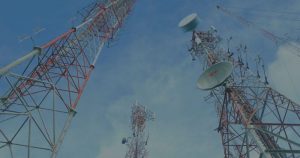
Setting up a radio system can be a large undertaking, especially for a winter drilling project that will wrap up in a few months. If you need wide-area coverage on short notice (and with minimal setup time), consider going with Tridon Connect.
What kind of programming do I need?
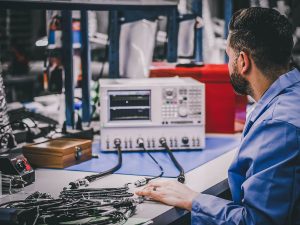
Do I have my frequency licenses?
This is a big one, and not just because of the annual costs involved.
Innovation, Science, and Economic Development Canada, or ISED (formerly, Industry Canada) requires a license to use most of Canada’s RF spectrum. The application itself is complicated and the process can take several weeks, and that assumes you get all the frequencies you need on the first attempt. Any errors in the application or modifications to it could delay the approval of your licensing and, consequently, your project. It’s best to get the ball rolling on this early.
There are a couple of shortcuts around this process. One of them is going with the few license-free frequencies available, but that option doesn’t guarantee privacy or uninterrupted access to the airwaves. You’re sharing the frequencies with all the other users in the area; you can hear them, and they can hear you.
Option two is Tridon Connect. In addition to providing wide-area coverage, our network can provide privacy and security for your project’s communications needs. Click here to learn more.
Do I buy or rent?
This is a big one, too. At the end of the day, you want the most value for your investment. Here are a few things to consider.
Renting
If you only need the radio for a short time (say, 3 or 4 months) and if you don’t plan to use them at other points during the year, renting may be the best way to go. ISED licensing is included in the cost of renting, and you can even rent monthly access to our Tridon Connect network. Also, if you don’t want to deal with storing, tracking and maintaining the equipment when it’s sitting in your warehouse then, once again, renting is the better option.
If you have questions about two-way radio rentals or would like to get a quote, visit our Rentals Page.
Buying
If you see your team getting a lot of use out of the radios and related equipment during the year, then purchasing them makes more sense. The added benefit is that you’ll always have them when you need them and won’t have to worry about the availability of rental gear.
Getting Started
These questions only scratch the surface. If you’re planning a winter drilling project or any large-scale project, a reliable communications system will be key to keeping your team connected, safe, productive and on schedule.
So, be sure to consider all these questions, and any others that come up. Don’t hesitate to ask the experts at Tridon if all your bases are covered, either. Our technicians and client support teams have been supporting communications systems in the Oil and Gas industry and are ready to lend that experience to you and your team to see that your project succeeds.
Tridon is a full solution Telecom Systems Integrator with CSA certification and licensed by APEGA. Our Engineering, Service and Tower Divisions collaborate with customers to build engineered solutions including communications systems design, tower inspections and co-location, wireless broadband, fiber optic cabling, site security, and two-way radio communication.

